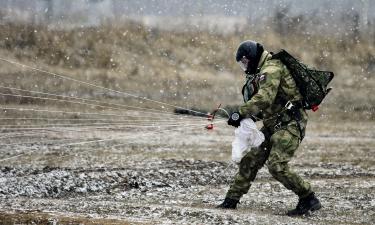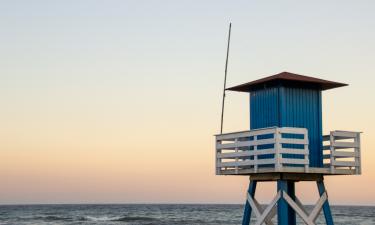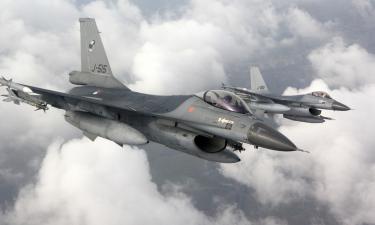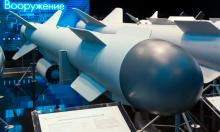Does Russia Need the WTO?
When is Russia to join WTO? Is it ready for WTO membership?
At the time when Russia's Prime Minister Mikhail Kasyanov said at the session of the Foreign Investments Advisory Council that Russia might become a member of the World Trade Organization "within the shortest period" on condition that no unusual, non-standard and politicized demands were no longer made with respect to Russia, the talks at a WTO conference in Mexico's Cancun ended in an absolute failure.
It was expected that a new international world trade agreement would be signed, but it is highly likely that signing of the document will be postponed till the end of 2004. The problem of high tariff barriers in agriculture that prevent agricultural producers from developing countries from entering the markets of developed countries hasn't been solved. What is more, the talks about the rights that can be given to foreign investors, on free competition and commerce, on relief of the boundary tariffs regime and on transparency in governmental contracts are now in deadlock.
US Trade Representative Robert Zellick says this is a poor result for all parties involved. "I hoped nothing of the kind would happen. My opinion is that there are no developing countries that wouldn't like to speed up the process. But the WTO is the organization that advances toward success only after reaching concord. But we lack it now." A spokesperson for the British non-governmental organization World Development Movement supports this opinion. He says developing countries were right having rejected signing of the document; it is the EU that is responsible now for the problem.
But will the European Union make concessions? It has lots of problems to settle, and the main problem is to overcome one of the most serious crises in the whole history of the organization. This problem was voiced by participants of the monthly session of the EU economy and finance ministers held in Italy. They also touched upon an international agreement, the Stability Pact that regulates the policy of the country for the sake of the single currency stability. At the time when the whole of the European economy has become weaker, there are several countries that have violated the norms when the deficits of their budgets exceeded the critical level of 3 per cent of the GDP. France and Germany, in particular, have already exceeded the limit; Italy and Portugal have approached the limit very close.
Italy's Finance Minister Giulio Tremonti intends to suggest to the European Commission a way out of the situation: he suggests that Paris and Berlin should be given an opportunity to violate the pact so that the country could carry out structural reforms without the danger of social outbursts. If we consider the position of EU countries in the WTO from this particular point, we understand that Europe doesn't care about problems of developing countries now, while the latter aim at entering the markets of developed countries.
Another attempt to reach a compromise will be made in December when an extraordinary summit of WTO members is to take place. This is unlikely that all of European problems will be settled by that moment. For the time being, EU Commissioner for Agriculture and Fisheries Franz Fischler is reforming several agricultural sectors. This concerns cotton production, growing of olive trees and olive oil production. The reform provides for reduction of subsidies for development of the sectors in EU member countries. The same measures can be applied to the European tobacco industry.
EU Commissioner for Foreign Trade Pascal Lamy says that all parties were a loser at the WTO conference in Cancun. The EU commissioner says that the fewer regulations are applied to commerce, the less the chance for "the jungle law" there. "Jungle law" means that the strong become stronger and the weak - even weaker. At the same time Pascal Lamy thinks that European countries should care about WTO's better organizational performance to make the next conference a success.
The World Trade Organization was founded in 1995. This is the youngest trans-national structure but its history is great. WTO is the successor to the General Agreement on Tariffs and Trade signed in 1948.
69 countries joined WTO in 1997, now the number of its members makes up 146. Former Soviet republics are also members of the organization; Kyrgyzstan joined it in 1998, Estonia and Latvia - in 1999, Lithuania and Moldova - in 2001, Armenia became a WTO member in February 2003. Main objective of WTO is to eliminate trade barriers. Over the last half-century the international commerce has registered an unprecedented growth. In 2000, the volume of international trade was 22 times higher than that in 1950. The trade tariffs reduced almost 8 times within the same period.
The USA started trade wars with a view to protect the US domestic market; each time the results of the wars were sad. In the 1980s, the US textile industry was on the brink of bankruptcy as it couldn't compete with clothes and textile exported by producers from Latin America, India and South-Eastern Asia. With a view to protect its producers, the USA suddenly increased the import duties on these goods.
As a result, prices on the US domestic market increased by 60 per cent. Even though some protective measures were taken the US textile industry couldn't stand the competition.
In the 1980s, the USA employed the same method to protect its car makers. In 1978, Japanese cars made one half of US's automobile import. US companies experienced rather hard times which resulted in recession in the whole of the US economy. At that very period it was seriously discussed that the US domestic market might be closed for foreign competitors. In 1980, limitations were introduced concerning import of Japanese cars in the USA; the prices increased by more than 40 per cent within four years. American companies managed to change the situation for their own sake by the beginning of the 1990s only and recovered the world leadership in car making.
In spite of WTO's peacekeeping efforts three large-scale trade wars occurred in the world within the past five years: beef war, banana war and steel war. In 1989, the USA pledged to export hormone-free beef to Europe (a great pat of meat is produced in the USA with hormone additions to forage). In 1999, the EU accused US meat producers of violation of the commitment. In its turn, the USA raised duties for many European goods. The war ended in August 1999 when talks were held with mediation of WTO and Europeans admitted that quality of American beef improved. However, the echo of the beef war is still strong as the issue is still sometimes discussed at US-European summits.
In April 1999, the USA defeated the EU in the banana war. It was for the first time that WTO took the side of one of its members and admitted that EU countries broke the free trade regulations; it was declared that is why the sanctions imposed by the USA were fair. European countries (England and France first of all) preferred to import bananas from those countries that used to be their colonies. In 2002, the steel war broke out because the USA raised the steel import duties. Russia, Ukraine and Kazakhstan fell victims to this war.
WTO has determined the following principles of trade agreements: all partners are equal; imported and local goods have equal rights on the domestic markets; trade barriers should be reduced through negotiations; agreements must be transparent and predictable; fair competition must be supported; economic development and economic reforms must be supported.
Subscribe to Pravda.Ru Telegram channel, Facebook, RSS!





